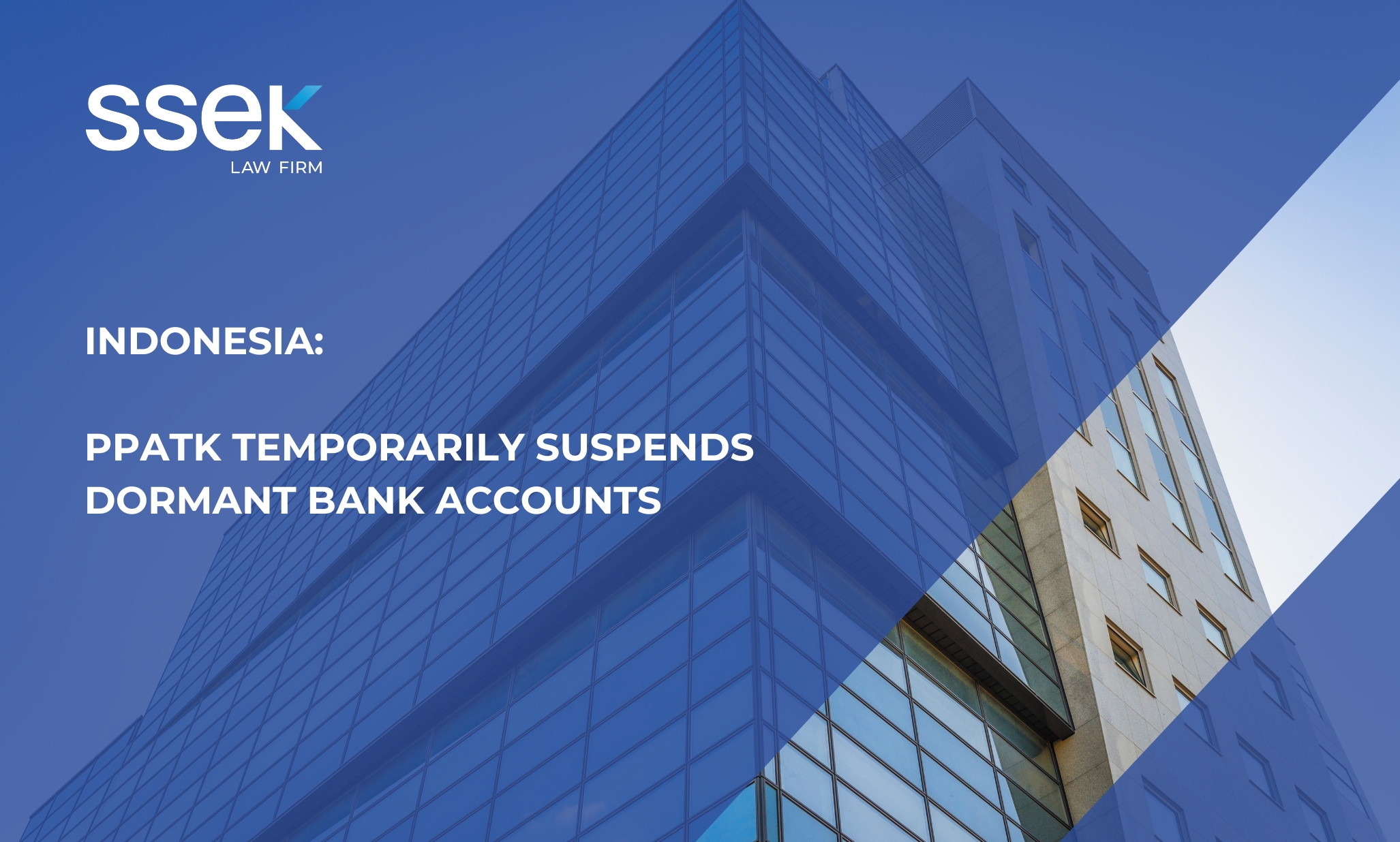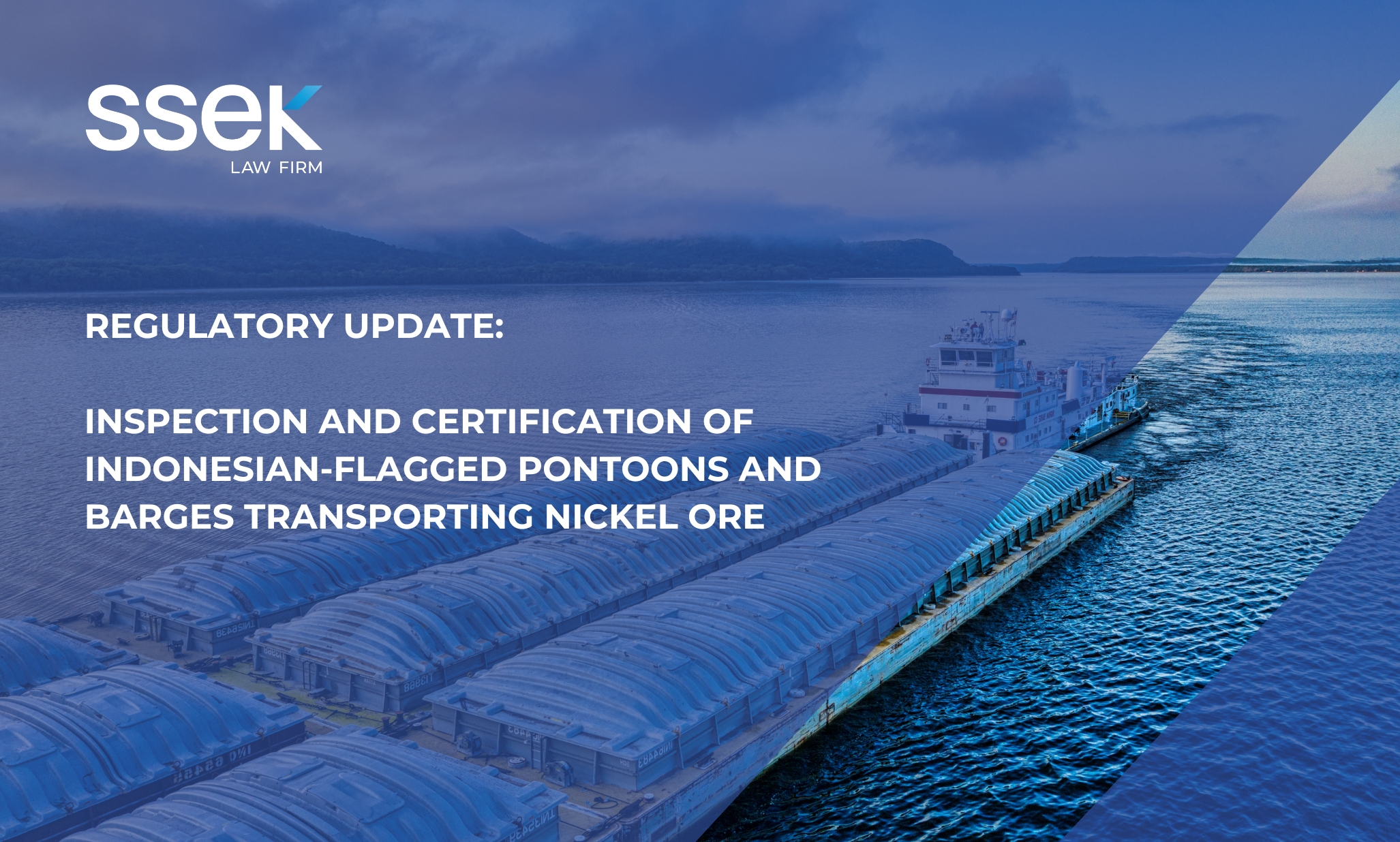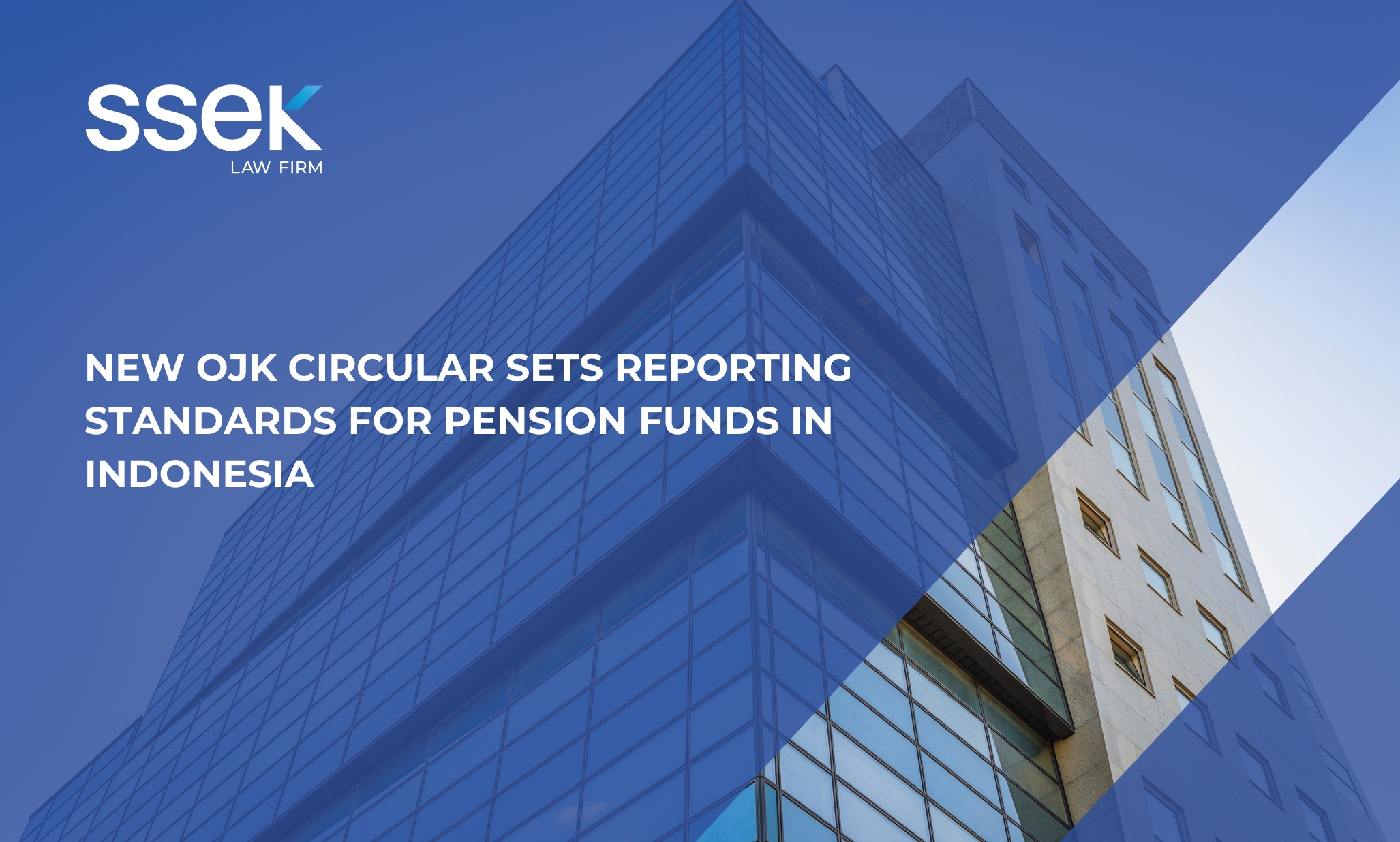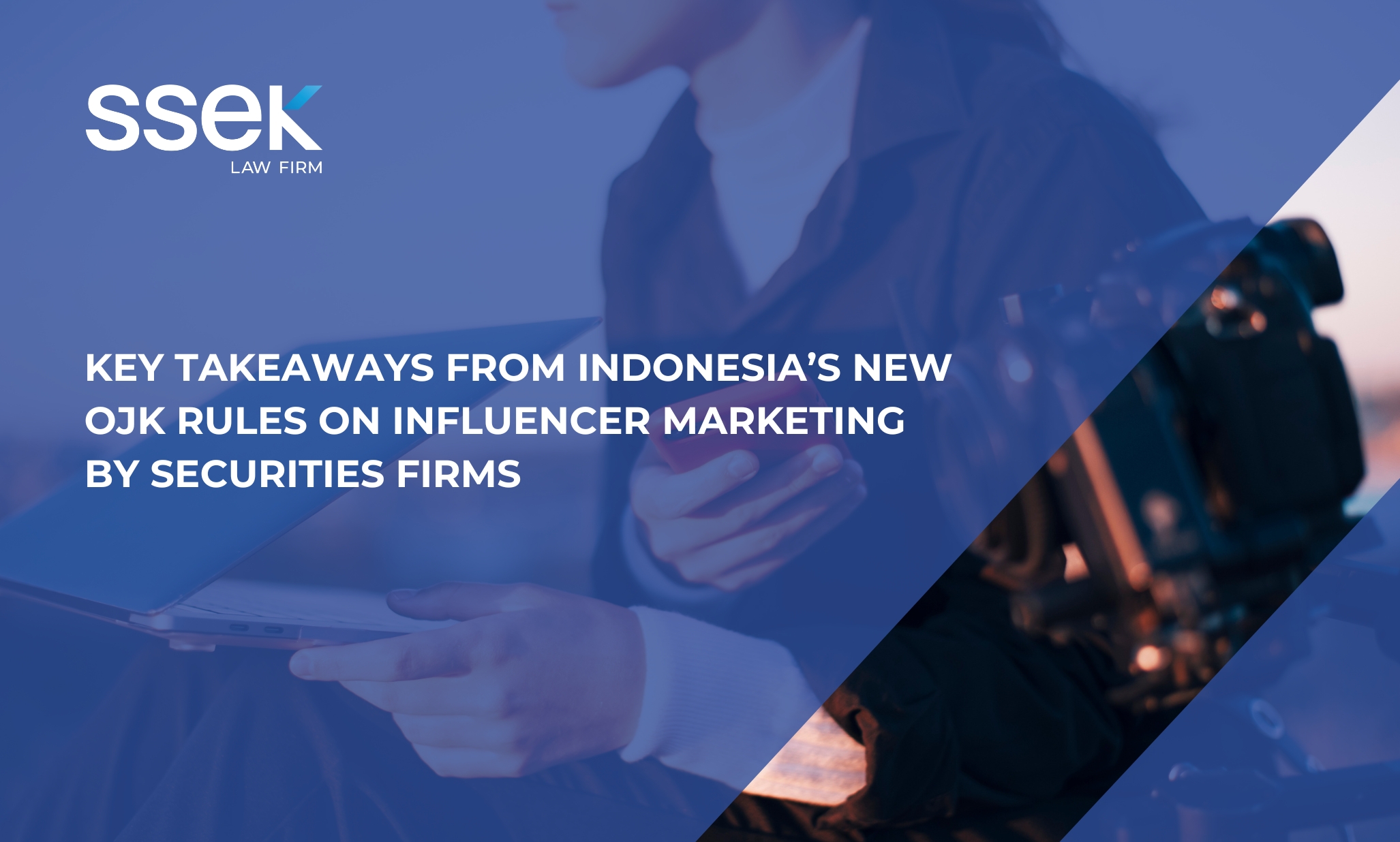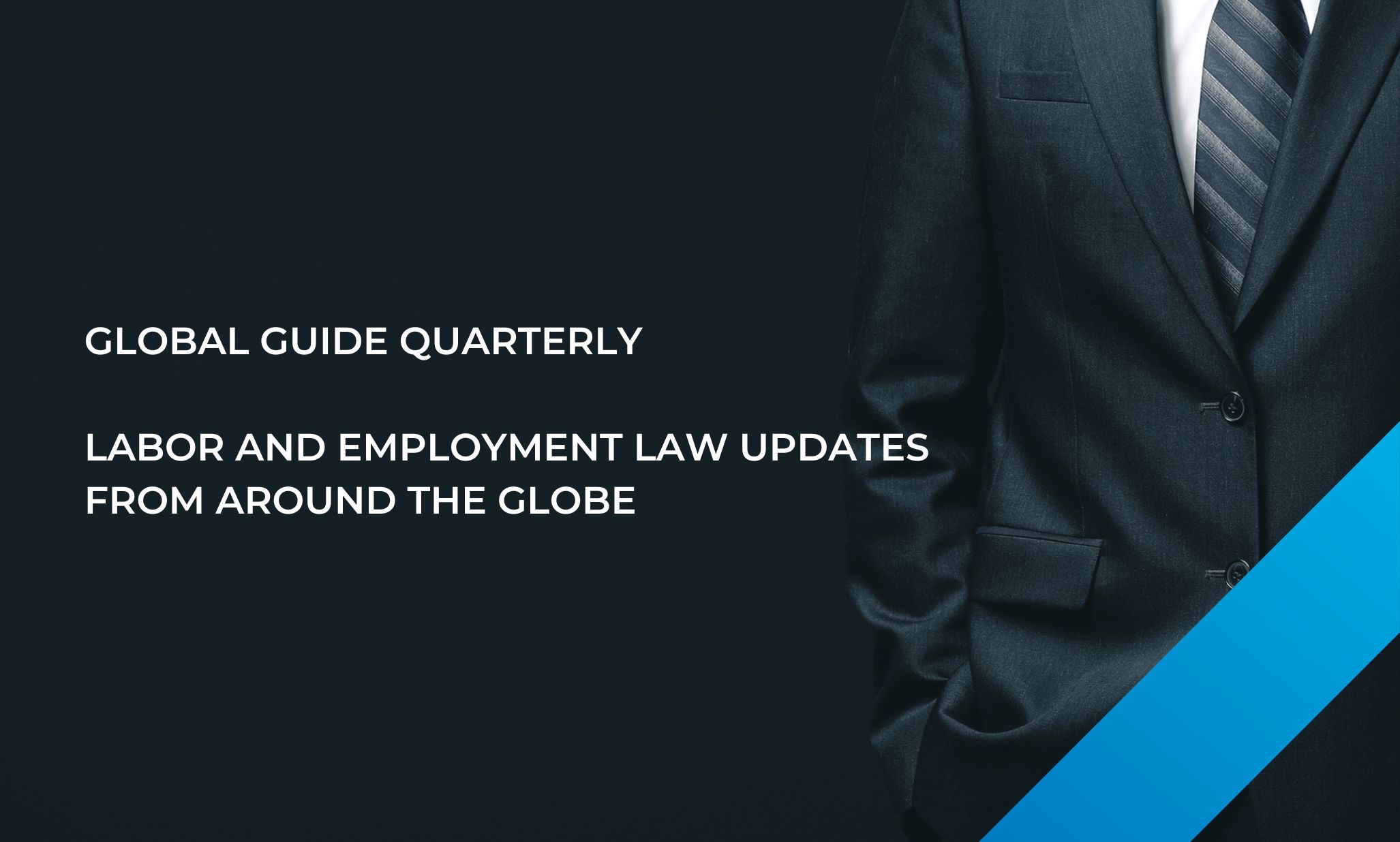


From nickel to gold, Indonesia is recognized as having one of the world’s largest mineral reserves. Given the importance of the mining sector to the nation’s economic growth and the global market, there is a need for more favorable regulation of Indonesia’s mining sector to ensure standards of compliance that protect employees, communities, and the environment.
To address these needs, Law No. 4 of 2009 on Mineral and Coal Mining was introduced, as later amended by Law No. 3 of 2020 and lastly by Government Regulation in Lieu of Law No. 2 of 2022. These amendments were made in response to developments, problems, and legal needs in the implementation of mineral and coal mining. In line with this, Government Regulation No. 96 of 2021 (“GR 96/2021”) on the Implementation of Mineral and Coal-Mining Business Activities was enacted to ensure the implementation of good mining principles and the implementation of the national downstream (hilirisasi) program.
With the government’s continued deregulation and debureaucratization of the mineral and coal sector, there was a need to adjust production-operations in the mining sector as well. This led to the issuance of Government Regulation No. 25 of 2024 (“GR 25/ 2024”), which was enacted on May 30, 2024, which amends GR 96/2021.
The key amendments include:
- Removal of the “Annual” Element for Work Plan and Budget (Rencana Kerja dan Anggaran Biaya or “RKAB”)
Under GR 96/2021, Mining Business License (Izin Usaha Pertambangan or “IUP”) and Special Mining Business License (Izin Usaha Pertambangan Khusus or “IUPK”) holders were required to prepare and submit their RKAB annually to the Minister of Energy and Mineral Resources (“MEMR”).
GR 25/2024 has removed the “annual” requirement for the RKAB submission, which is in line with MEMR Regulation No. 10 of 2023 regarding Procedures for the Drafting, Submission and Approval of Work Plan and Budget, and Procedures for the Reporting of the Implementation of Mineral and Coal-Mining Business Activities. The validity period of the RKAB now differs for each phase – one year for the exploration phase and three years for the production-operation phase.
- Religious Organizations Can Be Granted Mining Rights
GR 96/2021 prioritized State-Owned Enterprises (“SOEs”) and Regionally-Owned Enterprises (“ROEs”) for the acquisition of licenses for Special Mining Business License Areas (Wilayah Izin Usaha Pertambangan Khusus or “WIUPK”).
Under GR 25/2024, in addition to SOEs and ROEs, priority WIUPK offers can now be made to business entities whose shares are majority owned and controlled by religious organizations, specifically for former coal mining contract areas (eks Perjanjian Karya Pengusaha Pertambangan Batubara or “eks PKP2B”).
GR 25/2024 stipulates that the IUPK and/or shared ownership of the religious organizations in the business entities may not be transferred without the approval of the MEMR. In addition, GR 25/2024 stipulates that the business entities of religious organizations are prohibited from forming a cooperation with previous PKP2B holders and/or their affiliates.
- Extending the Production-Operation Phase for SOE subsidiaries
Under GR 96/2021, an IUP or IUPK in the Production-Operation phase held by an SOE could be extended for a period of 10 (ten) years for each extension. GR 25/2024 provides that the 10-year extension not only applies to SOEs but also to the subsidiaries of SOEs.
- Change in Requirements for a 10-Year Extension in the Production-Operation Phase for Metal-Mineral and Coal Commodities
Under GR 96/2021, to be granted a 10-year extension for each extension in the Production-Operation phase for metal-mineral and coal commodities, IUP and IUPK holders integrated with processing and/or refining facilities or development and/or utilization activities had to meet the following criteria:
- the processing, refining, development, and/or utilization shall be conducted by the relevant IUP and/or IUPK holders themselves;
- have reserves available for operational requirements; and
- specifically for coal commodities, comply with the provisions on the types and/or minimum percentages of the amount of produced coal.
GR 25/2024 changes the requirement in point (a) above so the processing, refining, development, and/or utilization can now be conducted by business entities other than the IUP and/or IUPK holders, so long as the IUP and/or IUPK holders directly or indirectly hold at least 30% of said business entities, which cannot be diluted.
- Further Legal Certainty for Holders of IUPK Production-Operation
Under GR 96/2021, an issued Production-Operation IUPK shall remain valid until its term expires. With the enactment of GR 25/ 2024, holders of Production-Operation IUPK licenses issued before the amendment of Law No. 4 of 2009 concerning Mineral and Coal Mining may be granted extensions after fulfilling at least the following criteria:
- has a domestic integrated processing and/or refining facility;
- has available reserves to fulfill the operational needs of the processing and/or refining facility;
- at least 51% of its shares are owned by Indonesian participants;
- has entered into a sale and purchase agreement with an SOE, under which the SOE shall acquire at least 10% undiluted shares in the company holding the IUPK license;
- considering efforts to increase state revenue; and
- has a new investment commitment at least in the form of:
-
- further exploration activities; and
- increasing the capacity of refining facilities, which has been approved by the MEMR.
This form of license shall be granted an extension during the availability of reserves and will be evaluated every 10 years. The process requires an extension request to be submitted to the MEMR at least one year before the end of the Production-Operation phase.
After the enactment of GR 25/2024, the Production-Operation IUPK will now be issued as an IUPK as a Continuation of Contract/Agreement, following the requirements to issue and extend such license under Articles 115 to 128 of GR 96/2021.
Conclusion
GR 25/2024 has not been without controversy, particularly in allowing religious organizations to get into the mining business. As of June 10, 2024, only one religious organization, Pengurus Besar Nadhalatul Ulama (PBNU), has publicly expressed an interest in obtaining a mining business license. Several organizations, including Persekutuan Gereja-Gereja di Indonesia (PGI), Konferensi Waligereja Indonesia (KWI), and Huria Kristen Batak Protestan (HKBP), have raised concerns about this initiative, while other organizations such as Muhammadiyah are reportedly still considering the opportunity to obtain a mining license.
That being said, GR 25/2024 has introduced a number of constructive developments. These include submission of RKAB that follows different validity periods for the exploration phase and the production-operation phase of mining business activities, the 10-year extension of IUP and IUPK in Production-Operation phase for SOE subsidiaries, a change to the requirements for a 10-year extension in the Production-Operation phase for metal-mineral and coal commodities, and legal certainty for holders of IUPK Production-Operation.
This publication is intended for informational purposes only and does not constitute legal advice. Any reliance on the material contained herein is at the user’s own risk. All SSEK publications are copyrighted and may not be reproduced without the express written consent of SSEK.




